What Is the Alkaline Diet?
You may have heard of a diet called the Alkaline Diet (also known as Acid-Alkaline Diet or Alkaline Ash Diet) that promotes the eating of alkaline foods. This diet is based around the idea that the foods you eat can alter the pH level (acidity or alkalinity) of your body. As we know, the foods we eat are metabolized by the body and turns them into energy. This metabolic process transforms them into a kind of ash residue which can either be acidic or alkaline. Acidic ash is said to make you vulnerable to diseases while alkaline ash is believed to protect your body.
If the nutrients needed to maintain your body’s slightly alkaline state are not obtained through food, the body will draw these nutrients from its own sources such as bones and other vital tissues. This decreases the body’s ability to repair itself and detoxify heavy metals, hence making a person more vulnerable to fatigue and illness. This is why the alkaline diet stresses the importance of taking enough alkaline foods to keep the body in a healthy pH balance. The pH level varies within the body, some parts are acidic (stomach) while others are alkaline (blood). It is important to note that food only affects the pH level of your urine and not your blood. If the pH level in the blood falls outside the normal range (between 7.35 and 7.45), this could be fatal if left untreated. Check out this short video to learn more about alkaline diet and tips on how you can incorporate it in your daily diet.
List of Alkaline Foods
Foods can be grouped according to the pH level of the ash residue that they leave in your body: acidic (0-7), neutral (7), or alkaline (7-14). Acidic components include protein, phosphate, and sulfur. Alkaline components include calcium, magnesium, and potassium. Meat, poultry, fish, dairy, eggs, grains, and alcohol are examples of acidic foods. Natural fats, starches, and sugars are considered neutral. Fruits, nuts, legumes, and vegetables are alkaline foods which are basically the core of the alkaline diet. Remember that a food’s acid or alkaline-forming tendency in the body has nothing to do with the actual pH of the food itself. Citrus fruits might seem to be acidic but the citric acid they contain actually has an alkalizing effect in the body. Below are some of the best alkaline foods for your diet.
Vegetables
With only a few exceptions, such as White Asparagus and Brussel Sprouts, most vegetables are alkaline. Dark leafy greens, cruciferous, and most green vegetables are great choices for a alkaline diet. Many root vegetables with edible green tops also have alkalizing effects in the body.
Examples: Asparagus, Beets, Broccoli, Cabbage, Carrot, Cauliflower, Cayenne Pepper, Celery, Cucumber, Garlic, Kale, Lettuce, Onions, Peas, Peppers, Potato, Radish, Spinach, Swiss Chard, Turnips
Fruits
Fruits are good for your body not only because of their alkaline properties but for their antioxidants, vitamins, and fibre contents. These fruits have a pH level of between 8.5 – 10, with lemon being the most alkalizing fruit of all.
Examples: Apple, Avocado, Banana, Berries, Cantaloupe, Cherries, Grapes, Guava, Melon, Lemon, Lime, Orange, Peach, Pear, Pineapple, Pomegranate, Watermelon
Protein
One of the challenges of the alkaline diet is where to get your protein sources from since alkaline foods are based on fruits and vegetables. Not many people are aware that there are actually a lot of plant-based foods rich in protein. Adding a few serves of high-quality plant-based proteins to your diet will be sufficient.
Examples: Nuts, Beans, Legumes, Quinoa, Tofu
Spices
Almost all herbs and spices are alkaline-producing in the body. Including these in the preparation of other alkaline foods like fruits and vegetables is a great way to incorporate multiple alkaline sources in one meal. Not only will your food taste better, you will also get the most out of your alkaline diet.
Examples: Basil, Cinnamon, Coriander Leaf, Curry, Ginger, Liquorice, Mustard, Parsley, Sea Salt
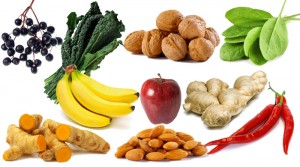
There are many different opinions about the alkaline diet. Supporters of this diet suggest monitoring your body’s pH level by testing your urine. On the other hand, health experts say it is a poor indicator of overall body pH and general health. Although food can alter the pH level of urine, it can be influenced by factors other than diet. It is important to understand that nothing you eat will substantially change your blood pH. Your body will always keep that level constant. Although the claims about the mechanism behind the diet are not supported by any scientific study or evidence, it doesn’t mean that following an alkaline diet is not beneficial to the body. It may not work for the reasons it claims, but it is still healthy as it is based on real and unprocessed foods. An Alkaline diet means choosing fruits and vegetables over higher-calorie and high-fat foods, and that translates to healthier food choices and reduced risk of diseases.
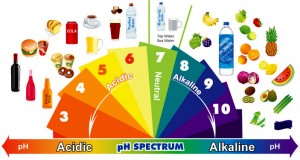
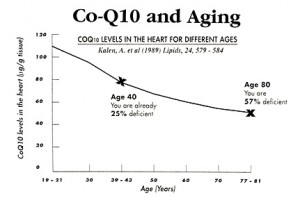 CoQ10 is a substance found in almost every cell in our body. It plays a vital role in generating energy within cells. It is a natural antioxidant synthesized by the body and can be found in many foods. Studies have found that as you grow older, your body produces less and less CoQ10. The graph illustrates that by age 40, you are already 25% deficient and by age 80, 57% deficient in COQ10. This makes it one of the most important anti aging supplements to take for adults over 30 years old. A young body can produce as much CoQ10 as it needs. However, factors such as aging and stress can lower the levels of CoQ10. This decreases the ability of cells to regenerate and withstand stress. Since the decline in CoQ10 levels correlates with the aging process, it is considered as one of the most accurate biomarkers of aging. CoQ10 is responsible for many chemical reactions in cells and produces 95% of the body’s energy. Without CoQ10 to help in biochemical reactions, the cells in the body would be unable to grow and divide. CoQ10 supplements not only provide internal health benefits but also help improve your aging skin. The lack of this nutrient in the body can impede the production of collagen and elastin that makes the skin firm and flexible. CoQ10 also helps the skin by neutralizing free radicals that cause aging. It reduces oxidation and breakages of DNA strands which are linked to longevity.
CoQ10 is a substance found in almost every cell in our body. It plays a vital role in generating energy within cells. It is a natural antioxidant synthesized by the body and can be found in many foods. Studies have found that as you grow older, your body produces less and less CoQ10. The graph illustrates that by age 40, you are already 25% deficient and by age 80, 57% deficient in COQ10. This makes it one of the most important anti aging supplements to take for adults over 30 years old. A young body can produce as much CoQ10 as it needs. However, factors such as aging and stress can lower the levels of CoQ10. This decreases the ability of cells to regenerate and withstand stress. Since the decline in CoQ10 levels correlates with the aging process, it is considered as one of the most accurate biomarkers of aging. CoQ10 is responsible for many chemical reactions in cells and produces 95% of the body’s energy. Without CoQ10 to help in biochemical reactions, the cells in the body would be unable to grow and divide. CoQ10 supplements not only provide internal health benefits but also help improve your aging skin. The lack of this nutrient in the body can impede the production of collagen and elastin that makes the skin firm and flexible. CoQ10 also helps the skin by neutralizing free radicals that cause aging. It reduces oxidation and breakages of DNA strands which are linked to longevity.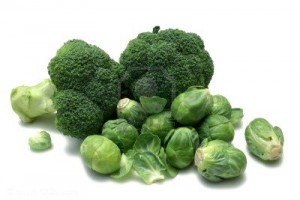 Lipoic acid is an antioxidant found in many foods like spinach, broccoli, potato, yeast, and is also made naturally in our bodies. It helps prevent certain kinds of cell damage in the body and restores the levels of vitamins C and E. Lipoic acid is one of the most powerful and longer-acting antioxidant vitamins known. It is said to be 400 times stronger than Vitamins C and E combined in terms of its antioxidant properties. Among the major antioxidants, only lipoic acid possesses the ability to work in both water-soluble and fat-soluble environments in the body. This means that it has access to all parts of our cells to combat free radicals. Aging cells need energy to keep them functioning properly. Supplementing with lipoic acid helps increase the energy for proper cellular metabolism needed for cellular repair. Human aging is marked by a sharp decline in the synthesis and recycling of glutathione and other antioxidants such as vitamins C, E, and COQ10. This leaves the body vulnerable to oxidative damage. Thanks to lipoic acid, the key antioxidants in our body can be regenerated. When applied topically, lipoic acid can also eliminate dark circles, reduce lines and wrinkles, even the skin tone, and transform dull complexion into a vibrant glowing skin.
Lipoic acid is an antioxidant found in many foods like spinach, broccoli, potato, yeast, and is also made naturally in our bodies. It helps prevent certain kinds of cell damage in the body and restores the levels of vitamins C and E. Lipoic acid is one of the most powerful and longer-acting antioxidant vitamins known. It is said to be 400 times stronger than Vitamins C and E combined in terms of its antioxidant properties. Among the major antioxidants, only lipoic acid possesses the ability to work in both water-soluble and fat-soluble environments in the body. This means that it has access to all parts of our cells to combat free radicals. Aging cells need energy to keep them functioning properly. Supplementing with lipoic acid helps increase the energy for proper cellular metabolism needed for cellular repair. Human aging is marked by a sharp decline in the synthesis and recycling of glutathione and other antioxidants such as vitamins C, E, and COQ10. This leaves the body vulnerable to oxidative damage. Thanks to lipoic acid, the key antioxidants in our body can be regenerated. When applied topically, lipoic acid can also eliminate dark circles, reduce lines and wrinkles, even the skin tone, and transform dull complexion into a vibrant glowing skin.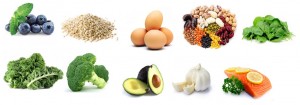
 There’s a wide variety of superfoods you can choose from. You can choose from an array of everyday common foods that provide these nutrients or some exotic and less mainstream foods that are worth getting to know. You may have also heard of turmeric, chia seeds, flaxseeds, goji berries, and many more that are also considered superfoods with their own nutrient contents and health benefits. Superfoods are constantly evolving and every year we see new foods coming out as “super”. If you’re on the look out for new and trendy superfoods this 2016, check out this
There’s a wide variety of superfoods you can choose from. You can choose from an array of everyday common foods that provide these nutrients or some exotic and less mainstream foods that are worth getting to know. You may have also heard of turmeric, chia seeds, flaxseeds, goji berries, and many more that are also considered superfoods with their own nutrient contents and health benefits. Superfoods are constantly evolving and every year we see new foods coming out as “super”. If you’re on the look out for new and trendy superfoods this 2016, check out this